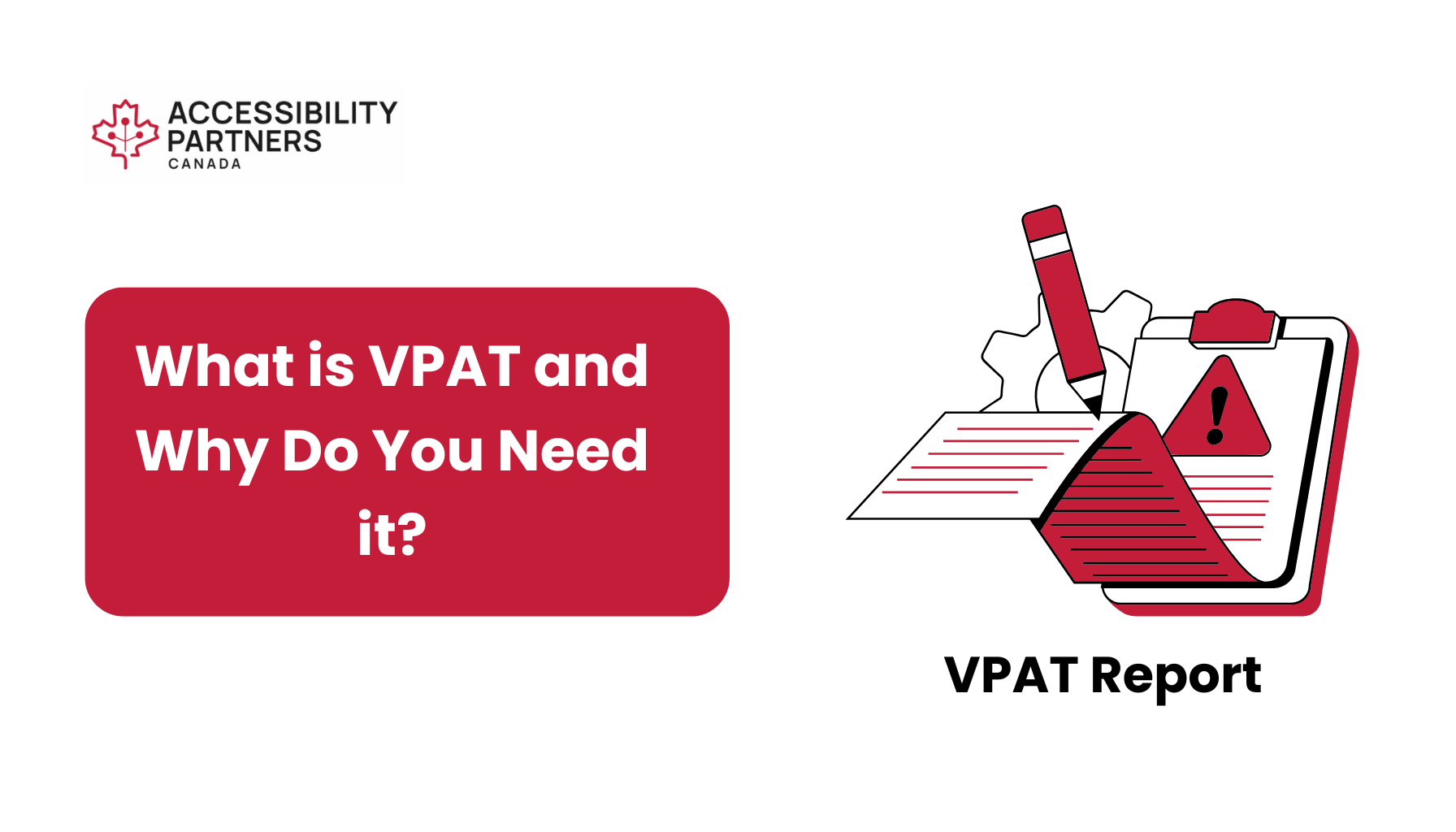Our Blogs

When it comes to improving the accessibility of your website, documents, or built spaces, the first step is always a detailed accessibility audit. It might sound like an involved and complicated task. Yet, it’s a critical tool when it comes to improving the accessibility and inclusivity of your organization.

Alt text is an essential element in making documents, images, and infographics accessible to individuals with visual impairments. It provides a textual alternative to visual content, enabling screen readers to convey the message to users who cannot see the images. However, the creation of alt text often presents challenges for organizations, leading some to seek external solutions.

People with disabilities often face barriers in their everyday lives that prevent them from fully participating at work or in other aspects of society. With the goal of getting rid of this discrimination related to disabilities, the government began the development of the Accessibility for Ontarians with Disabilities Act (AODA) in 1994.

In today’s digital environment, creating accessible documents is a huge part of web accessibility. When we talk about creating accessible documents, what we’re referring to is making digital documents and their contents — text, images and any graphics — accessible to everyone, including people with disabilities.

In today’s online world, accessibility is not just a nice-to-have, but it’s a necessity. When we talk about accessibility, we’re not necessarily talking about access in the broad sense of public reach. Instead, we’re talking about disabled access, and the design of online spaces in a way so that people with disabilities can use them. This is known as digital accessibility.

Over the years, web accessibility compliance has become a key priority for businesses and website owners as they face penalties for non-compliance. And this applies to not just websites, but mobile applications as well. In short, the need for greater digital accessibility for users with disabilities is ramping up. This is where web accessibility certification comes into play. Think of it like a formal acknowledgement

Beyond the moral reasons to make your website accessible for people with disabilities, there is a legal obligation as well. But the myriad of legal and regulatory requirements — spanning not just accessibility, but also privacy, data protection and other considerations — can make it difficult to navigate the complex task of making your website compliant.

There is certainly a business case to be made to ensure that your website and digital applications are accessible and meet the needs of users with disabilities. This includes the legal imperative, commercial opportunities and moral requirements. But ensuring your digital products are accessible to everyone is easier said than done. So, this is where accessibility testing comes in.

NDEAM—short for National Disability Employment Awareness Month—takes place every October, where we recognize the skills of employees with disabilities that contribute to the workplace.

What do you think of when someone mentions Accessibility Barriers? Does it perhaps pertain to buildings or sidewalks with a narrow walkway unsuitable for wheelchairs? How about infographics with no alternative text (alt text)? While society has come a long way in creating more accessible environments, persistent challenges remain as barriers to total inclusivity. Accessibility barriers are challenges or obstacles that limit individuals with disabilities

The commitment to inclusivity has become a cornerstone for organizations across the public sector spectrum. From federal agencies to provincial bodies and municipal entities, diverse public sectors share a common goal — ensuring their digital landscapes are accessible to everyone.

It's no secret that digital accessibility has become a crucial aspect of web development. Digital content that's up to date on the latest accessibility standards ensures that all users, regardless of disabilities, can access and interact with online content seamlessly.
CONTACT US
Get Free Initial Compliance Consultation
At Accessibility Partners, we specialize in ensuring compliance with accessibility standards. Let us handle all your accessibility needs efficiently, so you can focus on your core business. Trust our expertise to keep your organization accessible to all.
